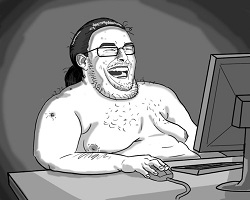Research suggests that many New Zealanders are ignorant in ways that support left-wing and secular ideologies. Don’t blame me, I didn’t carry out the survey!
A common theme in my thinking lately is about the way that we humans come to hold many beliefs for non-rational reasons. We imagine the world to be a certain way, not because it is that way but (whether we realise it or not) because it would suit us in some way for the world to be that way. If we’re prejudiced against foreigners, it’ll suit us to say that we’ve got a major problem with migrants coming here, whether such a problem exists or not, and we’ll – unconsciously, perhaps – look for ways to interpret any available data in a way that supports this belief. If we are hardcore left-wing feminist social justice warriors (you know who you are), it would suit our interests if there was a real massive pay gap between men and women in our country, or if a lot of pro-lifers were violent terrorists, and as a result we may well form those beliefs with little or no assistance from the facts, quite apart from whether or not the world really is this way. In bipartisan fashion I’ve picked a “left wing” and a “right wing” example.
Because of my interest in the subject of why we believe as we do, I was intrigued to look at the findings of recent survey called “Perils of Perception 2015: A 33 Country Study.” The subtitle is “Perceptions are not reality: What the world gets wrong.” The summary reads: “Ipsos MORI’s latest version of the Perils of Perception survey highlights how wrong the public across 33 countries are about some key issues and features of the population in their country.”


